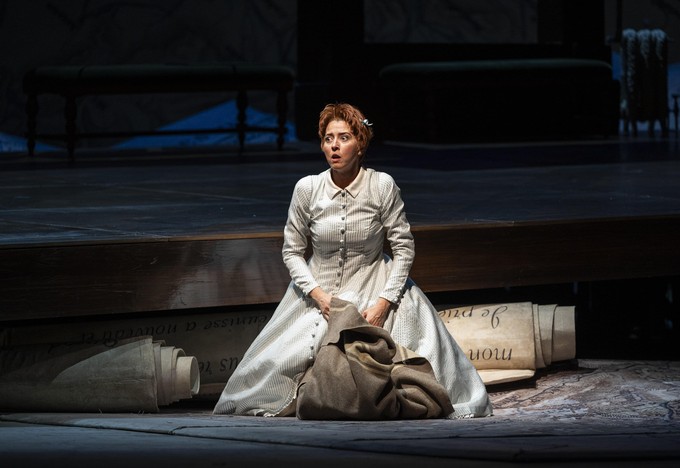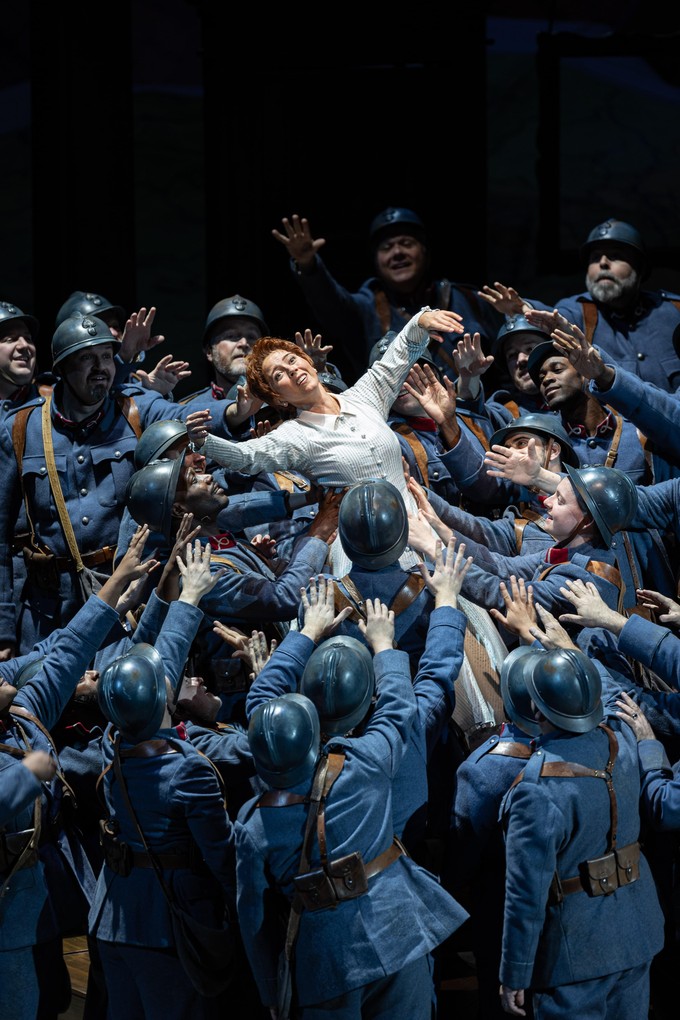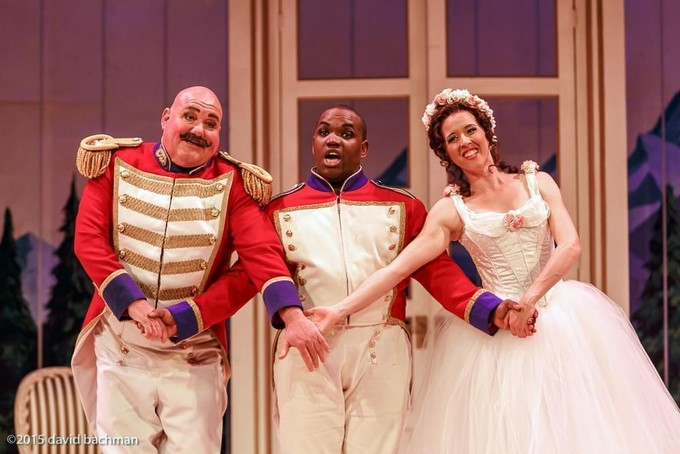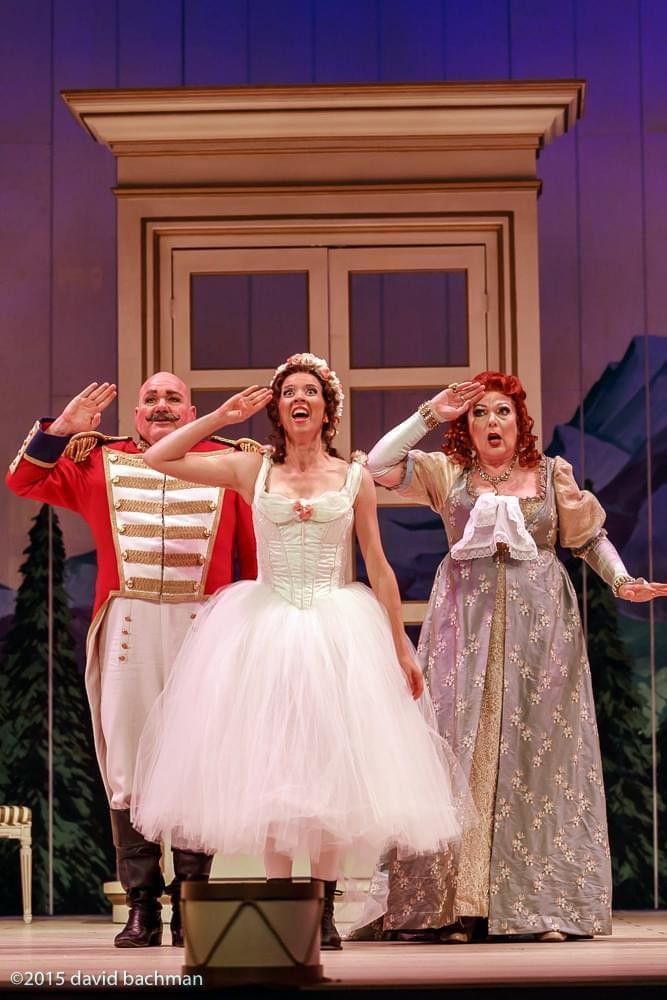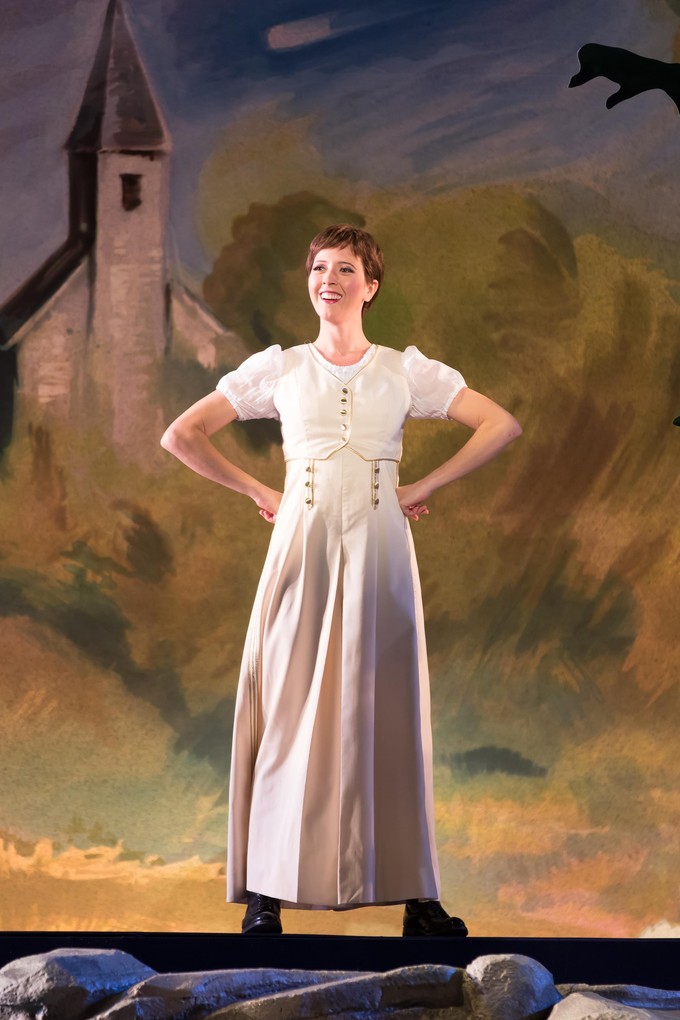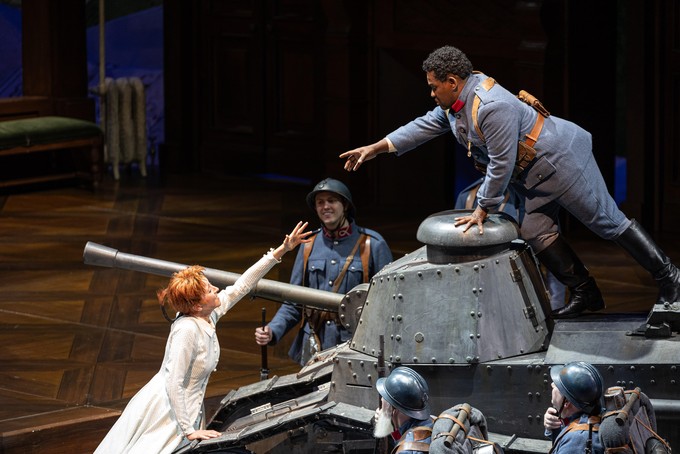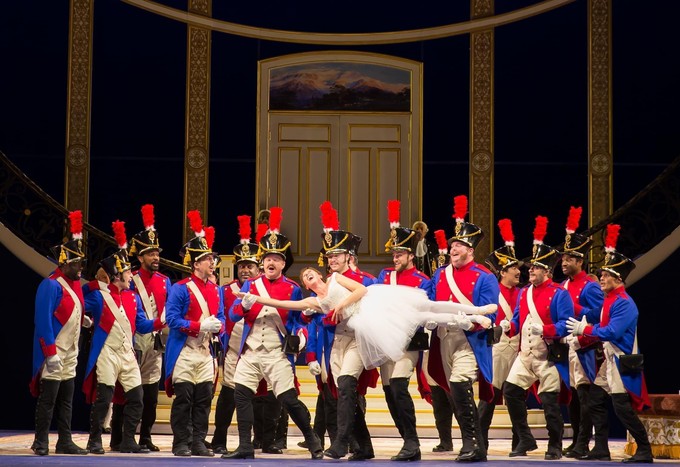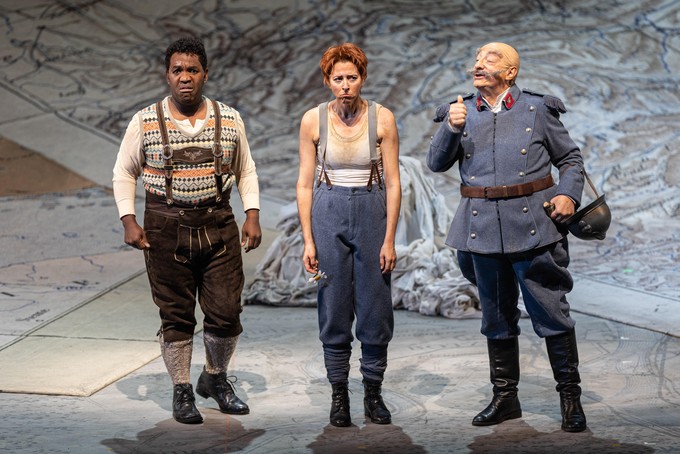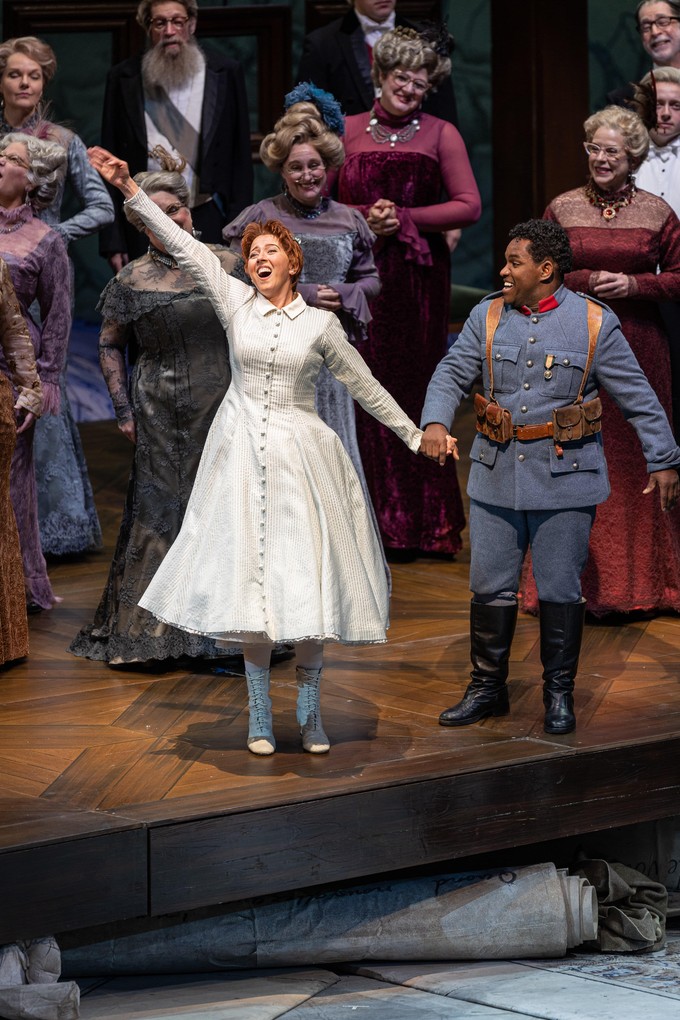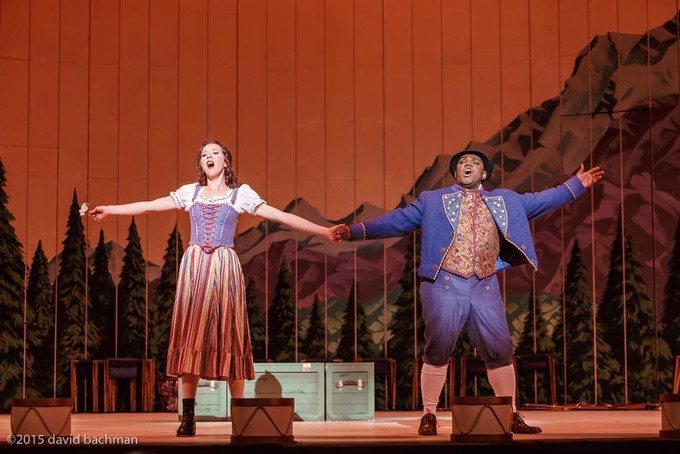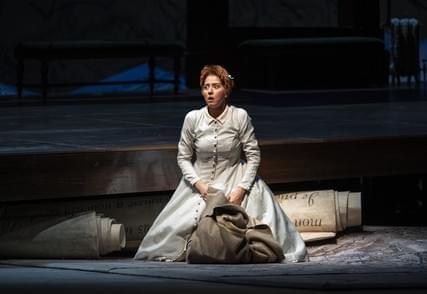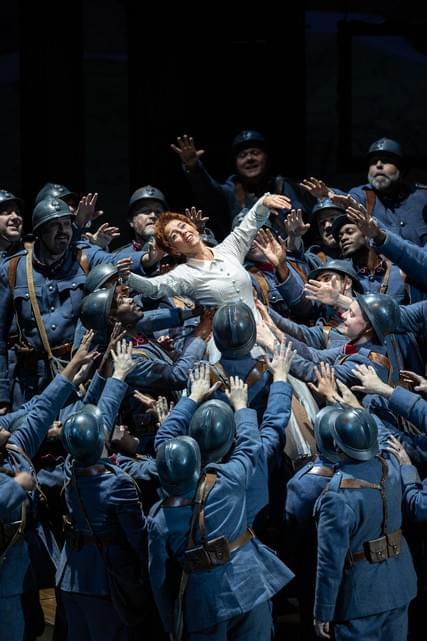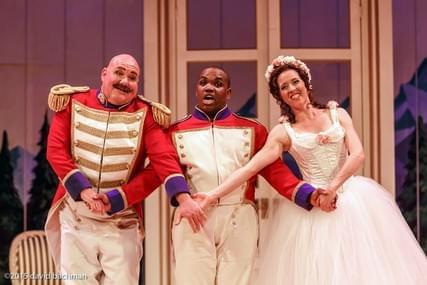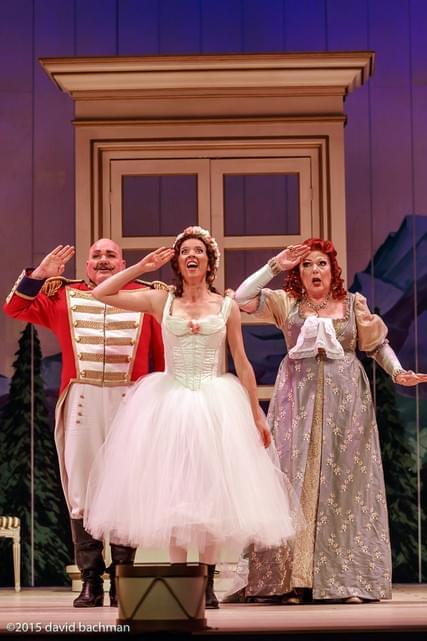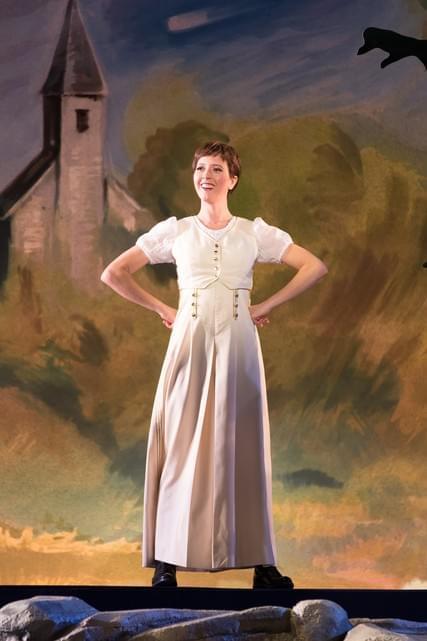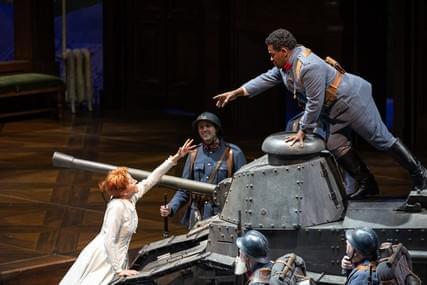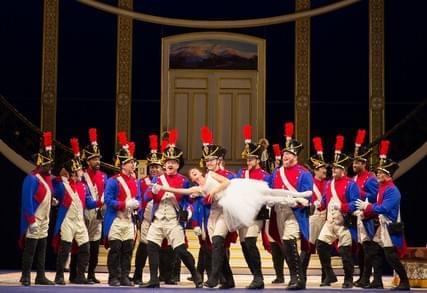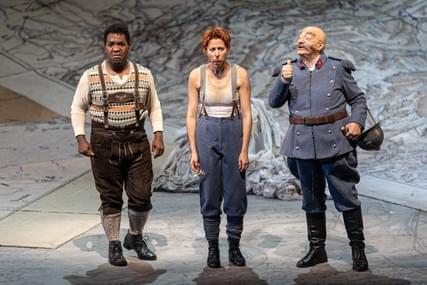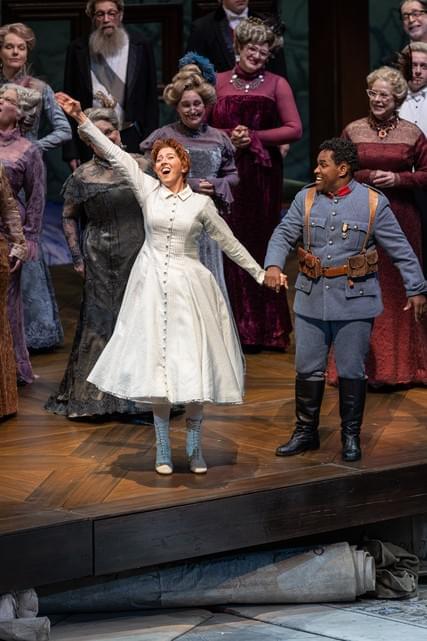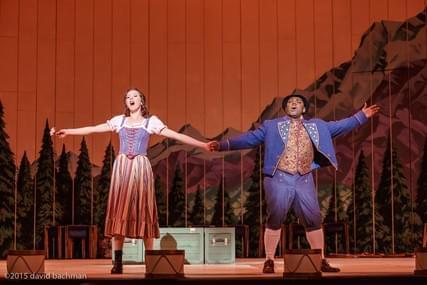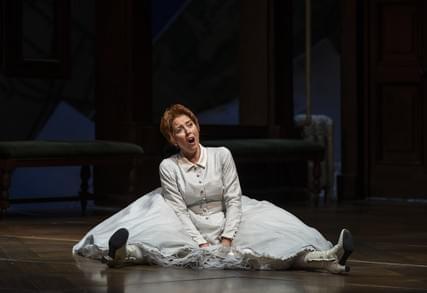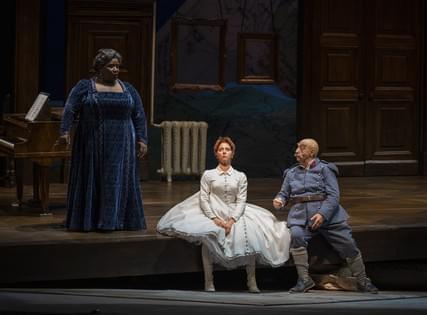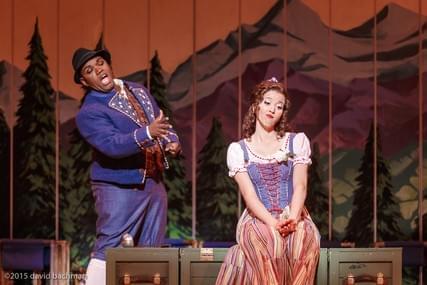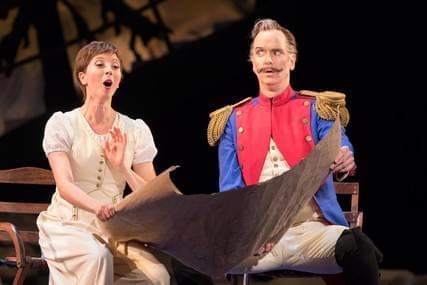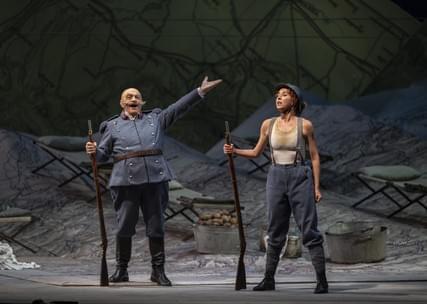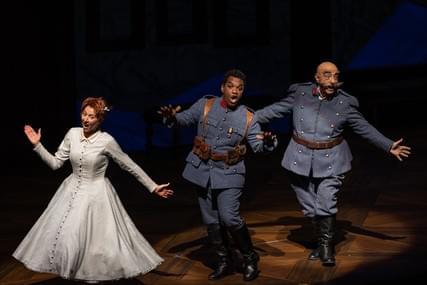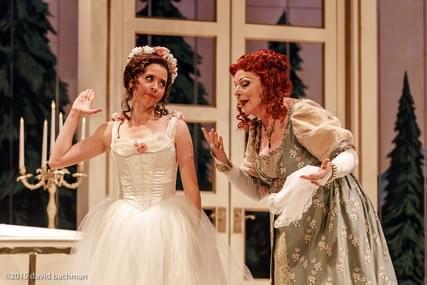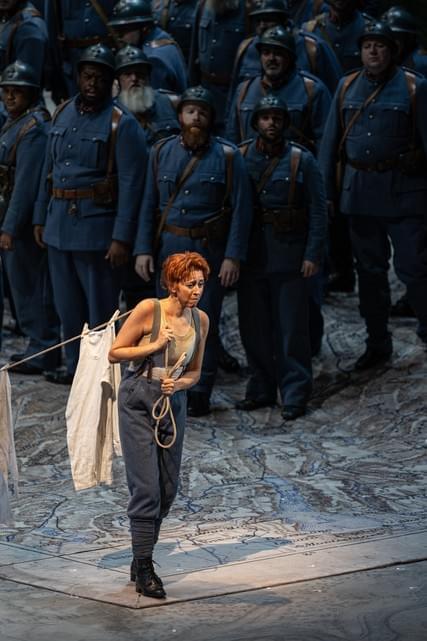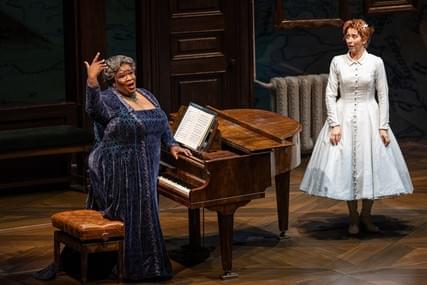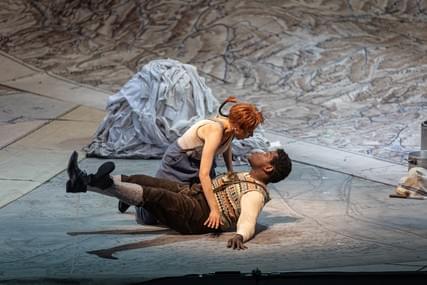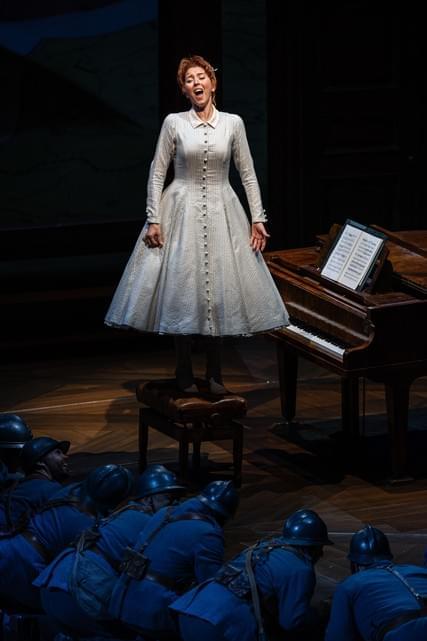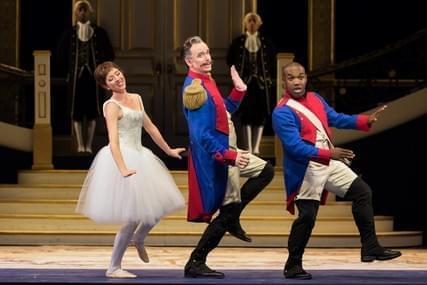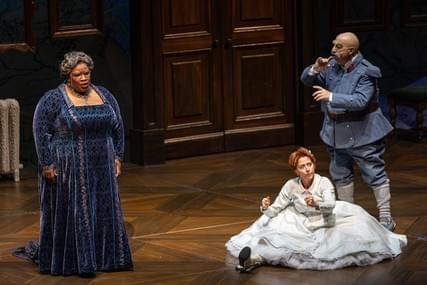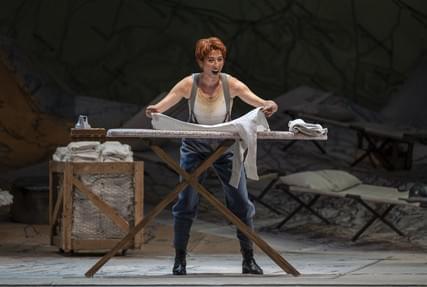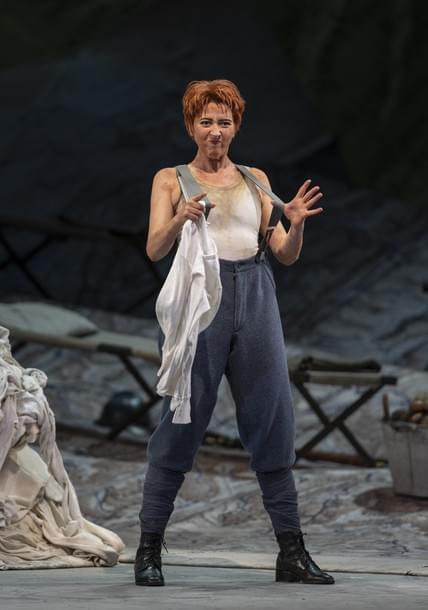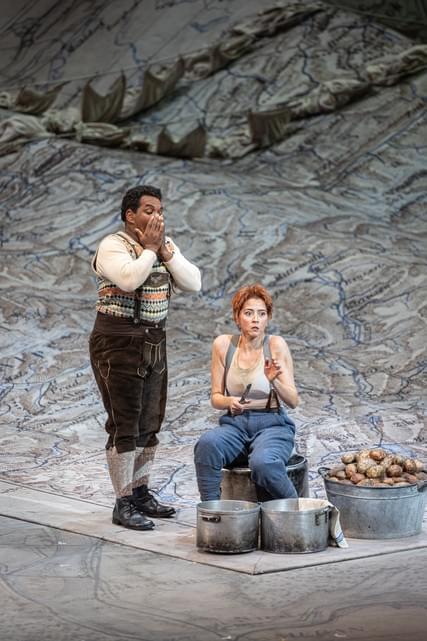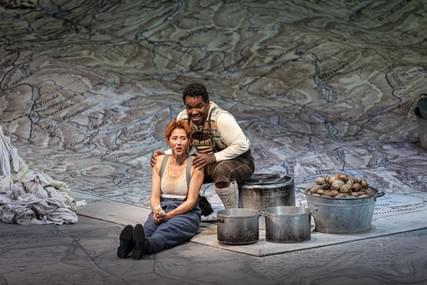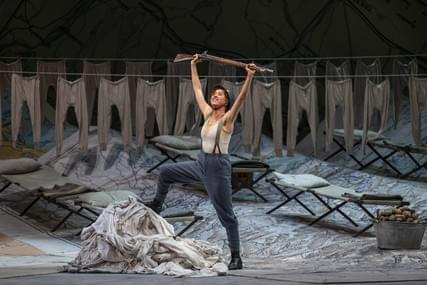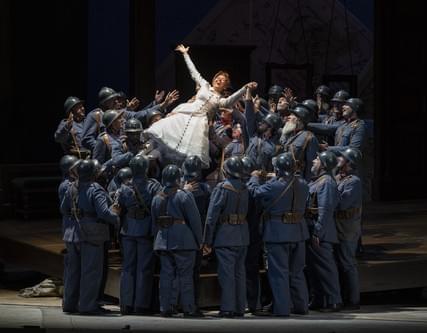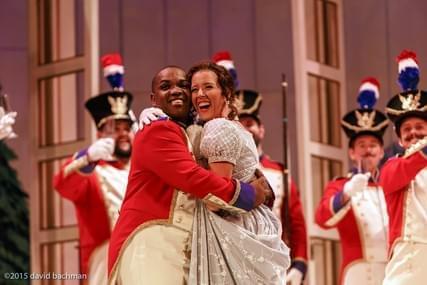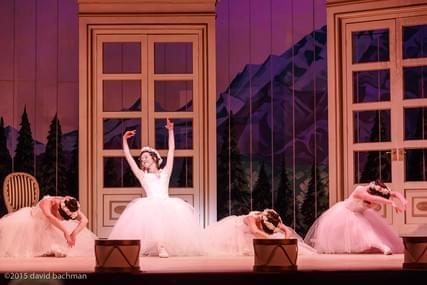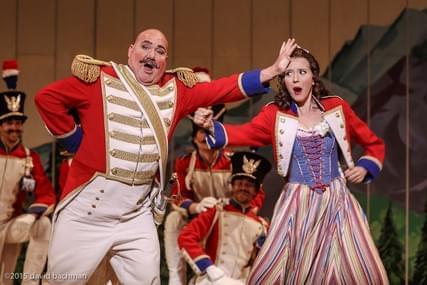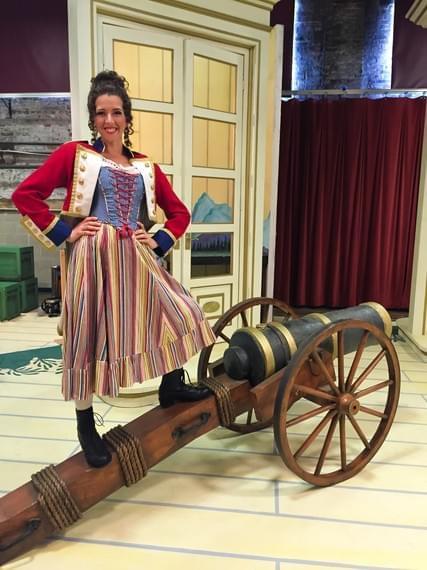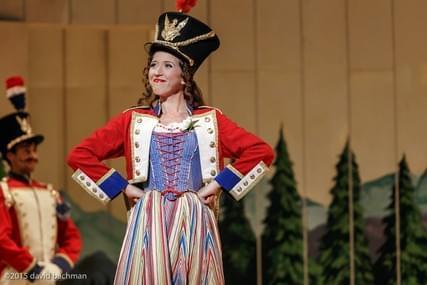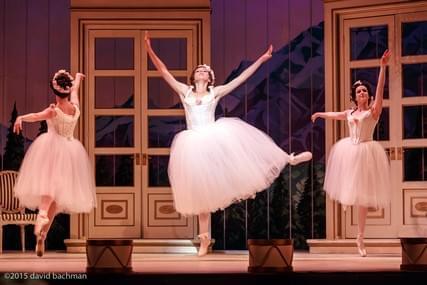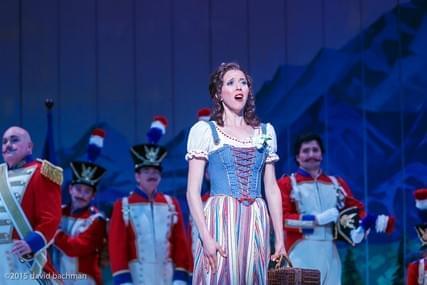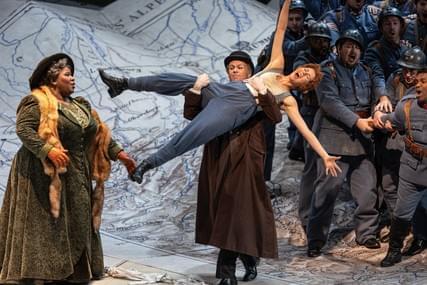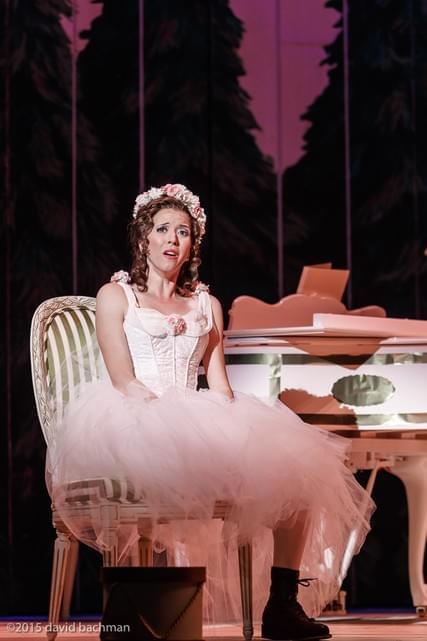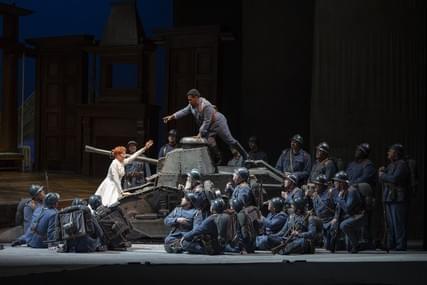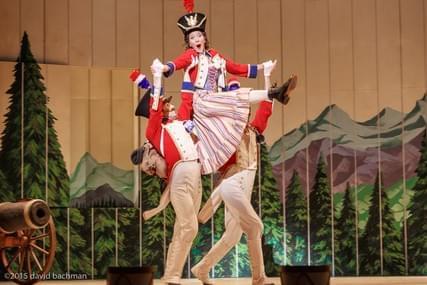Marie in La fille du régiment
Lisette Oropesa's portrayal of Marie in "The Daughter of the Regiment" has been met with widespread acclaim across various reviews, highlighting common themes of technical brilliance, engaging stage presence, and comedic flair. Critics consistently praise Oropesa's ability to capture Marie's essence through her pure, limpid tone and thrilling top notes, particularly in challenging arias like "Il faut partir." Her vocal prowess is complemented by an innate ability to infuse her performance with both emotional depth and light-heartedness, making her interpretation memorable and distinct.
A recurring theme in the reviews is Oropesa's remarkable stage presence and comedic talent. Described as engaging and insuppressible, she captivates audiences with a combination of physical comedy and expressive singing, drawing comparisons to iconic performers such as Carol Burnett and Lily Pons. Her natural ability to connect with her character and the audience adds a layer of authenticity and charm to her performance, making her portrayal not only technically impressive but also deeply entertaining.
In the context of her Lyric debut and her previous acclaimed performances in the role, Oropesa's Marie is often cited as a standout interpretation, even in a role historically associated with opera legends like Beverly Sills and Dame Joan Sutherland. Her ability to breathe new life into the character while maintaining the role's traditional demands underscores her versatility and artistry as a leading soprano in contemporary opera. Overall, Oropesa's Marie is celebrated for its blend of vocal finesse, emotional resonance, and theatrical vivacity, solidifying her status as a formidable talent in the operatic world.
Lisette has been reviewed 19 times in this role.
Role Information
- Composer: Gaetano Donizetti
- Opera: La fille du régiment
- Performances: 16
- Reviews: 19
- Venues: 3
- Organizations: 3
- Years: 2015 - 2023
Famous Interpreters
The role of Marie in Gaetano Donizetti's "La fille du régiment" was first performed by the soprano Euphrasie Borghèse at the opera's premiere on February 11, 1840, at the Opéra-Comique in Paris. Limited historical documentation is available regarding Borghèse's biography and career, but she is noted for originating the role of Marie. The premiere also featured Mécène Marié de l'Isle as Tonio and Wartel as Sulpice. Due to the lack of comprehensive records from that period, further details about Borghèse's other roles or career achievements are not well-documented.
Among other notable interpreters of Marie, Jenny Lind was a prominent figure in the mid-19th century. Active primarily in the 1840s and 1850s, Lind was renowned for her performances in various operatic roles, although specific documented performances of her as Marie are limited. Another significant interpreter was Dame Joan Sutherland, active from the 1950s to the 1980s, who recorded the role of Marie in a well-documented 1967 performance with Luciano Pavarotti as Tonio. Sutherland's career included numerous acclaimed recordings and performances, establishing her as a leading figure in the operatic world. Additionally, Beverly Sills, active in the 1960s and 1970s, is known for her portrayal of Marie, with documented performances at the Metropolitan Opera in New York. These sopranos are recognized for their contributions to the opera's performance history, with verifiable recordings and performances that continue to be referenced in discussions of the role.
About the Composer
Gaetano Donizetti, a prolific Italian composer of the bel canto era, is renowned for his ability to blend lyrical beauty with dramatic intensity. Born in 1797 in Bergamo, Italy, Donizetti became a pivotal figure in the transitional period between the Classical and Romantic eras, crafting operas with memorable melodies and emotionally compelling narratives. "La fille du régiment," composed in 1840, showcases Donizetti's flair for combining comedy with vocal virtuosity. Premiered at the Opéra-Comique in Paris, this opera was written to appeal to French audiences, highlighting Donizetti's adaptability and international appeal. Its significance lies in the infectious energy and charm of its story about a spirited young woman raised by a regiment of soldiers, beautifully encapsulated in the famous "Ah! mes amis," known for its demanding sequence of high Cs. Donizetti's approach to vocal writing in this opera is particularly noteworthy; he masterfully balances technical demands with expressive potential, allowing singers to shine both in terms of vocal agility and emotional depth. Through "La fille du régiment," Donizetti cemented his reputation as a composer who could effortlessly infuse humor and heart into his music, captivating audiences worldwide.
Performance History
Lisette has performed Marie 16 times.

